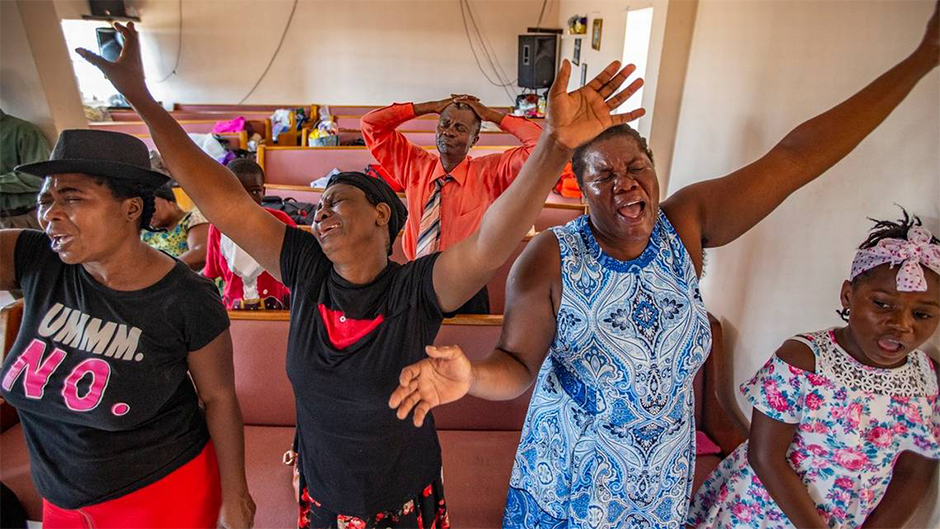Haitian Bahamians have been an ethnic migrant group within the Bahamas dating back to the early 1900s. Today, many of them live on Abaco Islands, one of the areas hardest hit by Dorian. Despite making up approximately 20 percent of the population, not all Haitians have been embraced by their nation, and some experience severe stigmatization.
Those issues have become even more pronounced since the hurricane, and many Haitians in the Bahamas are now dealing with, or will have to confront, profound mental-health needs.
Living through the hurricanes’ historic devastation may reawaken memories of the catastrophic 2010 earthquake in Haiti of many Haitians Bahamians. While this may be painful, it should remind us of the inspiring resilience Haitians in Haiti displayed while using their own resources and capitalizing on their own strengths in the face of this devastating disaster.
Dating back to their historic defeat of Napoleon’s army and becoming the first black independent country in the Western Hemisphere, Haitians’ sociocultural history conveys a deep inner strength and the cultural value that there is no obstacle that cannot be overcome.
Rather than allowing this resilience to harden them, Haitians embrace cultural values of hospitality and kinship that extend beyond blood relations. Moreover, profound spirituality empowers Haitians in all facets of life. Whether facing a run-of-the-mill day or a catastrophic storm, Haitians flourish and heal from the support received from interpersonal and spiritual connections.
When providing mental-health support during post-storm recovery, it is critical to educate oneself regarding Haitians’ beliefs about natural disasters and mental distress. For example, some Haitians may experience culturally bound syndromes such as sezisman (seized-upness) and movè san (bad blood) and often interpret bodily ailments as stemming from both natural and supernatural causes. Because of the stigma associated with poor mental health, many individuals struggling with mental distress confide in religious leaders in the community. Visiting mental health specialists should work in tandem with a pastor or other spiritual leaders, as they are more highly regarded culturally and trusted more than the specialists.
Other points to consider for ensuring mental health services are culturally congruent for Haitians in the Bahamas:
- Normalize mental healthcare post-disaster. It is important to remember that, in light of disaster, all emotional responses are normal. Common emotional responses of grief and distress are adaptive, and healthcare professionals should resist the urge to pathologize adaptive human functioning. Haitians are likely to be more receptive to mental-health interventions when presented as part of general recovery efforts. While helping survivors connect with various community resources, first responders can use the opportunity to listen to their stories. This should be done without putting pressure on survivors to talk or use westernized terms (i.e. trauma, resilient) to label their experiences.
- Support local efforts. Local organizations may provide more culturally appropriate interventions. Since Haitian family bonds expand across country borders, supporting local organizations may more efficiently get adequate care to all who need it. For example, women appear to be the metaphorical connective tissues in which communities are held together and information is passed. This communal closeness functions as a network for jobs and childcare and can just as easily function as a referral network for mental-health resources.
- Reestablish norms. One of the best ways to help Haitians specifically recover is to focus on the coping mechanisms that make them unique. For example, many Haitians tend to use food to connect and provide comfort. Resuming cultural practices, including rituals and religion, can speed a return to a sense of normalcy. Haitians feel a strong duty to fulfill work and personal obligations, and bringing them into recovery efforts can help in their personal health recovery.
Recovery efforts post-Dorian must incorporate Haitians and other marginalized groups living in the Bahamas to do the most good. These efforts, especially mental-health approaches, must be culturally congruent.
Guerda Nicolas is a psychologist and professor in the University of Miami School of Education and Human Development. Marisol Meyer and Ceewin Louder are students at UM.

